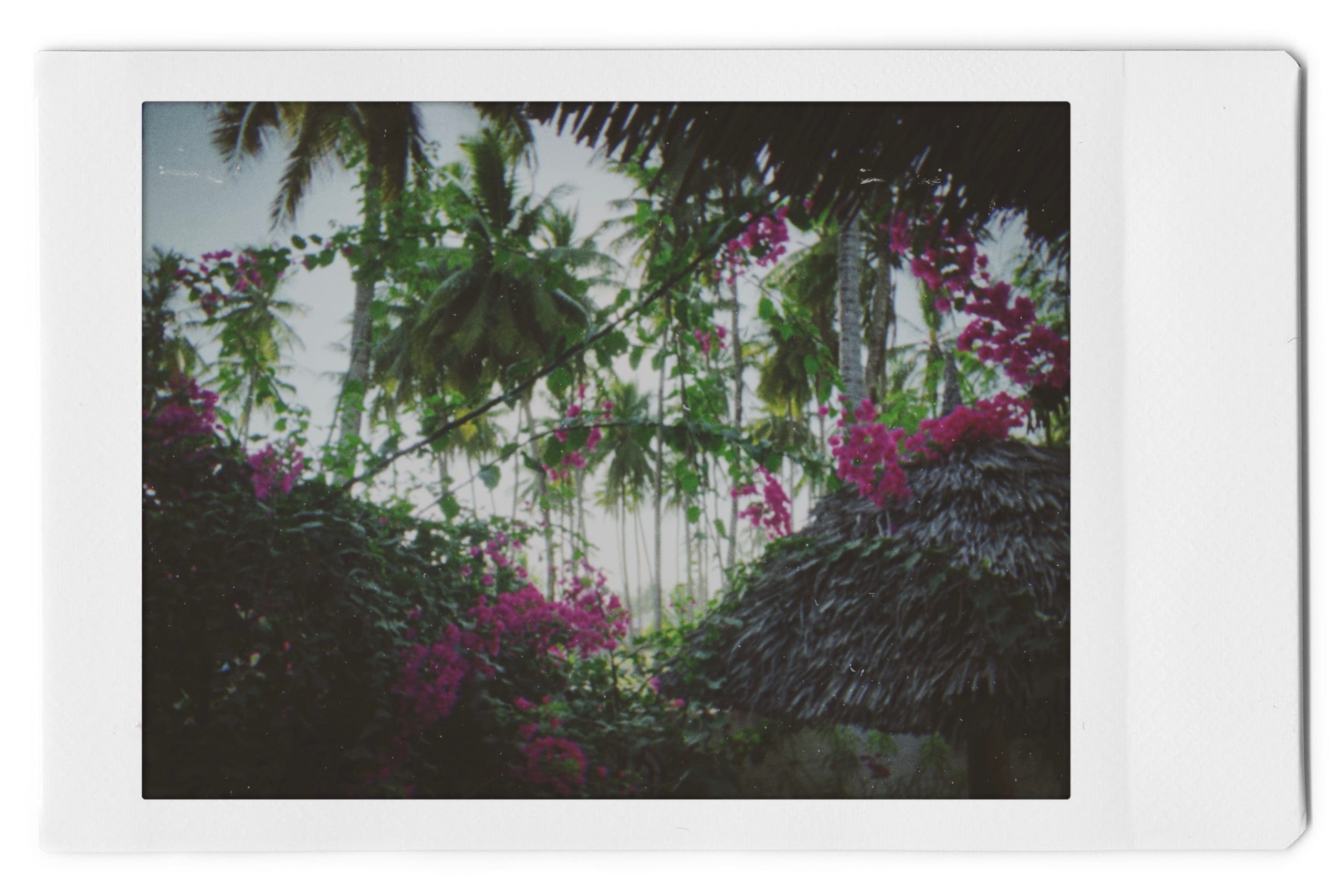The ceiling fan moves the air in the room, filtered by the mosquito net covering the large four-poster bed. And I enjoy the scene that to my eyes seems as natural as it is strange, in my mind the notes of Jim Morrison: This is the End albeit with a very different feeling: the vividness of its colors contrasting.
It is now midnight when we go to sleep – something quite unusual in Africa – and the silence around sounds familiar in some ways. At 4 a.m., the muezzin’s confident tones break the silence that even the inhabitants of the palm grove seemed to respect. The prayer of the rising day accompanies the timid dawning that will soon set Jambiani beach ablaze, painting, once and once again, that magnificent three-coloured canvas that repeats itself every day: the red of the sky, the turquoise of the sea, the white of the sand.
Africa – wanting to generalise and for a moment deny Kapuściński’s thoughts – is a great teacher, never ceasing to repeat a concept as simple as it is incomprehensible: in Africa, time does not exist. Or at least it does not exist in the conception that we, white people, have.
In Africa, time is subject to an event: birth, marriage, funeral, war, famine, and good harvest. Everything that happens in between is a suspended period that has to be faced and not necessarily experienced. Anticipation of the event with the wish that it might be remembered. And from there, it becomes a milestone for counting time, for the yardstick of memory.
Time is not a subject in Africa. And to keep up the local custom, as soon as you land and set foot on the soil of that part of the Earth recognised as Mother, apart from the heat and humidity of the place, you re-enter that mental and physical condition that belongs to you in Africa: time is in no hurry. And even in your efforts to speed things up, she will constantly bring you back to her level, to her natural state: things happen. Just accept them.
We begin here with stories of the work we are doing in Jambiani with the Training Camp and the project Taka Taka


